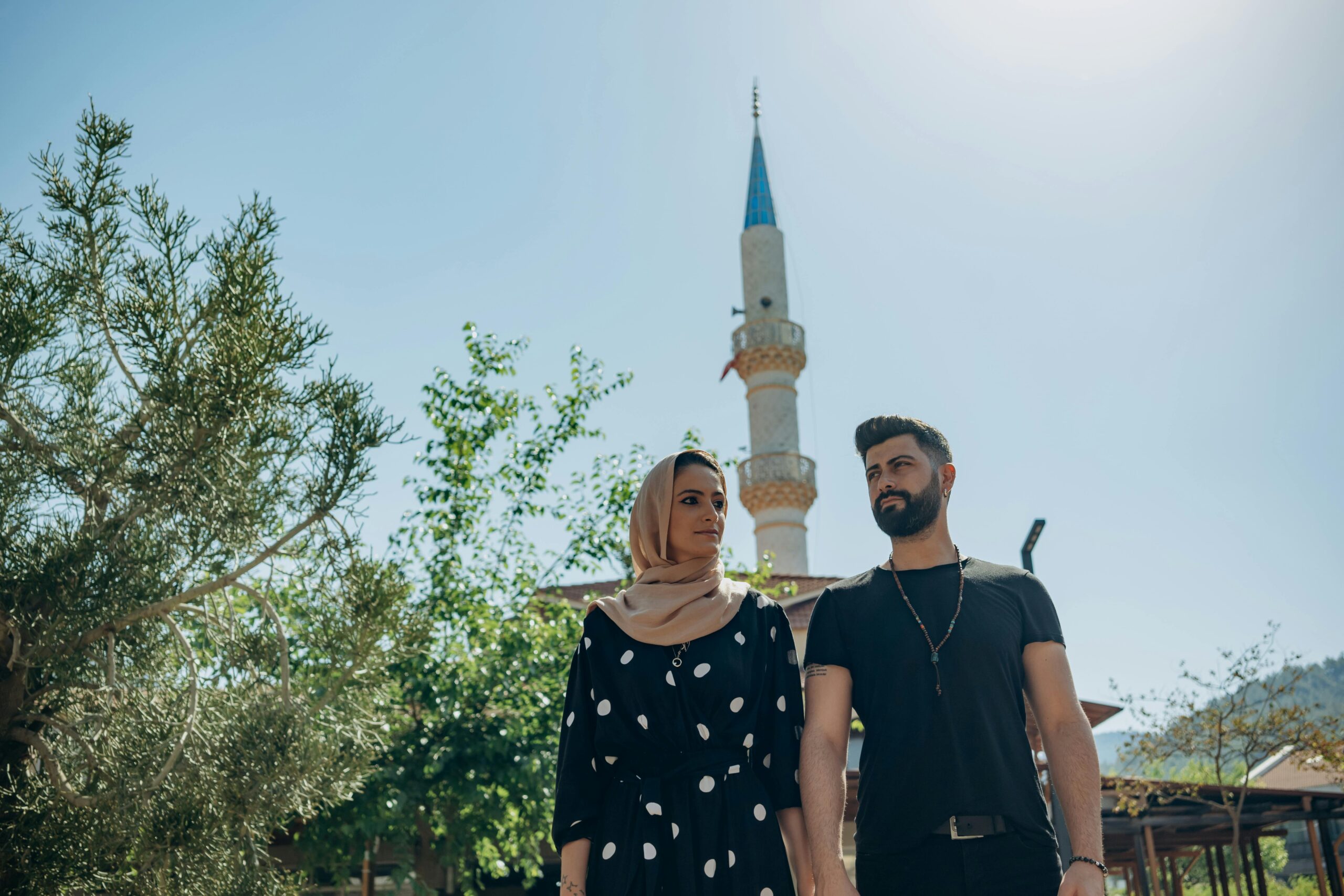Are you curious about the Islamic Date Today in Pakistan and what significance it holds for your daily life? Understanding the Islamic calendar and how it aligns with the Gregorian dates can unlock a deeper connection to cultural events, religious observances, and traditional practices. In this article, we will explore the importance of the Islamic date today in Pakistan 2018 and why staying updated with the Hijri calendar is more relevant than ever for millions of Muslims across the country. Ever wondered how the Islamic date influences festivals like Ramadan, Eid, or Muharram? Keep reading to discover the powerful role these dates play in shaping everyday routines and spiritual journeys.
The Islamic Date Today in Pakistan is not just a number on a calendar; it’s a gateway to understanding centuries-old traditions and religious milestones. Many Pakistanis rely on the Hijri calendar to plan significant events, from fasting schedules to religious gatherings. But did you know that the Islamic calendar operates on a lunar system, making it different from the Gregorian calendar most use day-to-day? This difference often causes confusion, especially when looking back at historical dates like the Islamic date today in Pakistan 2018. How did those dates impact religious celebrations or national observances back then? By diving into this topic, you’ll gain insights into how the Islamic calendar shapes cultural identity and spiritual awareness in Pakistan.
In today’s fast-paced world, staying informed about the Islamic date in Pakistan can help you align your activities with important Islamic occasions effortlessly. Whether you’re a devout Muslim or simply interested in cultural heritage, understanding the Islamic date today in Pakistan and its past relevance in 2018 can enrich your appreciation for this timeless calendar system. So, are you ready to uncover the mysteries behind the Islamic calendar and learn why it continues to matter deeply in Pakistan? Let’s embark on this enlightening journey together!
Understanding the Islamic Date Today in Pakistan: What Does It Mean for Your Daily Life?
Understanding the Islamic Date Today in Pakistan: What Does It Mean for Your Daily Life?
In Pakistan, many people follow both the Gregorian calendar and the Islamic calendar, often called the Hijri calendar. But what exactly is the Islamic date today in Pakistan, and why does it matter for everyday life? This question might seem simple, but the answer unfolds a lot about culture, religion, and even daily routines for millions of people across the country. This article will try to explain what the Islamic date means, how it is calculated, and its impact on Pakistani society, including a glance back to the year 2018 for comparison.
What Is the Islamic Date and How Is It Different From the Gregorian Calendar?
The Islamic calendar is a lunar calendar, based on the cycles of the moon. Unlike the Gregorian calendar which follow solar cycles and have fixed months of 30 or 31 days, the Islamic months start with the sighting of the new moon. Because a lunar cycle is about 29.5 days, Islamic months usually have 29 or 30 days, and the Islamic year is about 10 to 11 days shorter than the Gregorian year.
- Gregorian calendar: 365 or 366 days, solar-based
- Islamic calendar: 354 or 355 days, lunar-based
- Islamic months: Muharram, Safar, Rabi’ al-Awwal, Rabi’ al-Thani, Jumada al-Awwal, Jumada al-Thani, Rajab, Sha’ban, Ramadan, Shawwal, Dhu al-Qi’dah, Dhu al-Hijjah
In Pakistan, the Islamic date today is used primarily for religious observances. For example, fasting in Ramadan, celebrating Eid, and marking the Hajj pilgrimage all depend on the Islamic calendar. Unlike the Gregorian date which remains constant globally, the Islamic date can slightly vary in Pakistan depending on moon sighting reports.
Why Do Islamic Dates Matter For People in Pakistan?
Islamic dates are not just about religion, but they also affect social and cultural lives. Many national holidays and festivals in Pakistan are based on the Islamic calendar. Here are some examples:
- Eid ul-Fitr: Celebrated on 1st Shawwal after Ramadan fasting ends.
- Eid ul-Adha: Falls on 10th Dhu al-Hijjah, marking the end of Hajj.
- Islamic New Year: Starts on 1st Muharram.
- Ashura: On 10th Muharram, significant for both Sunni and Shia communities.
Besides holidays, Islamic dates also influence marriage ceremonies, business transactions (some people prefer Islamic dates for contracts), and educational calendars in religious schools (madrasas). Knowing the correct Islamic date today in Pakistan helps people keep track of these important events.
How the Islamic Date Today in Pakistan Was in 2018 Compared to Now
Looking back to 2018, the Islamic calendar was followed in the same way but the moon sightings sometimes caused debates and confusion. For instance, Ramadan started on different days in different cities because some observers saw the moon while others did not. This affected when fasting began for many people.
In 2018:
- Ramadan began around mid-May.
- Eid ul-Fitr was observed at the end of June.
- The Islamic New Year 1439/1440 started roughly in September.
Comparing to today, the same lunar principles apply but Pakistan’s National Moon Sighting Committee has tried to standardize the announcements to avoid confusion. Nonetheless, variations still occur due to geographical and atmospheric differences affecting moon visibility.
How Is The Islamic Date Calculated in Pakistan?
There are mainly two ways Islamic dates are determined in Pakistan:
-
Moon Sighting: Traditional and religious method. People look for the crescent moon (Hilal) after sunset on the 29th day of the current month. If the moon is sighted, the next day is the new month; if not, the current month completes 30 days.
-
Astronomical Calculations: Some scholars and organizations use scientific data to predict the moon’s position and visibility. This method is accurate but sometimes conflicts with traditional moon sighting.
The government usually announces the official Islamic date based on a moon sighting committee’s report. However, many communities still rely on their own local sightings, leading to slight differences in Islamic dates across Pakistan.
Practical Impact of Knowing the Islamic Date Today in Pakistan
Knowing the exact Islamic date today in Pakistan can affect daily life in several ways:
- Religious Practices: Timing of prayers, fasting, and charity depend on the correct date.
- Business and Banking: Islamic financial institutions use the Hijri calendar for interest-free banking products.
- Government and Public Sector: Official holidays and school vacations are planned according to Islamic dates.
- Social Activities: Weddings, funerals, and family gatherings often scheduled considering the Islamic month.
For example, during Ramadan, Muslims fast
Top 5 Reasons Why Tracking the Islamic Date Today in Pakistan Is Essential for Muslims
Tracking the Islamic date today in Pakistan is something many Muslims around the country still find very important. The Islamic calendar, also known as Hijri calendar, plays a crucial role in the religious and social lives of Muslims. But why exactly is it necessary to keep an eye on the islamic date today in Pakistan 2018 or even in the current years? Many people might not realize how deeply connected their daily activities are with the Islamic lunar calendar. Here, we explore the top 5 reasons why tracking the Islamic date today holds essential value for Muslims living in Pakistan.
1. Religious Observances Depend on the Islamic Date
The most obvious reason why tracking the Islamic date today in Pakistan matters is because all Islamic rituals and religious obligations are based on this calendar. Unlike the Gregorian calendar, the Islamic calendar follows a lunar system, which means that months start and end based on moon sightings. This affects major religious events like:
- Ramadan: The ninth month, when Muslims fast from dawn till sunset.
- Eid-ul-Fitr: Celebrated at the end of Ramadan.
- Eid-ul-Adha: Occurs on the 10th day of Dhu al-Hijjah.
- Hajj: The pilgrimage season for Muslims happens in Dhu al-Hijjah.
If Muslims do not keep track of the Islamic date correctly, they might miss or wrongly observe these important days. For example, fasting on the wrong day during Ramadan would invalidate the fast. So, knowing islamic date today in Pakistan is a way to keep religious duties on point.
2. Historical and Cultural Significance in Pakistan
The Islamic calendar has been used in Pakistan since before its independence in 1947. Pakistan’s national identity is closely linked with Islamic traditions and history. The creation of Pakistan was inspired by the vision to provide a homeland where Muslims could freely practice their religion. Therefore, the Islamic date today in Pakistan is not just about religion but also about cultural heritage.
Many national events are planned according to Islamic dates. For instance:
- Pakistan’s Independence Day celebrations sometimes coincide with important Islamic dates.
- Public holidays like Eid are declared based on the lunar calendar.
- Islamic festivals influence social customs and community gatherings.
The use of the Hijri calendar is deeply embedded in Pakistani society, reinforcing why Muslims find it necessary to track the Islamic date daily.
3. Planning Personal and Community Events
Many personal milestones and community activities revolve around the Islamic calendar. Weddings, naming ceremonies, and other family celebrations are often scheduled according to auspicious Islamic dates. Families prefer to choose dates that align with significant Islamic months or avoid forbidden months like Muharram for celebrations.
Communities also organize religious lectures, charity drives, and Quranic study groups based on the Islamic date. For example, the 15th of Ramadan is known for special prayers and Quranic recitations. Without accurate knowledge of the islamic date today in Pakistan, organizing such events would become difficult.
4. Islamic Date Today in Pakistan 2018: A Look Back
Looking back at the islamic date today in Pakistan 2018 helps us understand how tracking the calendar influences life. In 2018, several important Islamic dates influenced national and religious activities. For example, Ramadan in 2018 started on May 17th according to the Hijri calendar. This led to a month-long fasting period observed by millions.
Moreover, the Islamic date determined when the government announced Eid holidays, which affected business operations and public services. The Islamic calendar also guided the timing of religious sermons and community iftars (breaking the fast).
This historical perspective shows that even a few years ago, the reliance on the Islamic date was strong and continues to be so. The 2018 example reminds us that tracking Islamic dates is not a new practice but a continuous tradition.
5. Synchronizing with Global Muslim Community
Muslims in Pakistan not only observe Islamic dates locally but also synchronize their religious activities with the global Muslim community. With the spread of technology and social media, keeping track of the islamic date today in Pakistan allows Muslims to participate in global Islamic events at the right time.
For example, the start of Ramadan or Eid celebrations depends on moon sightings that can vary slightly by region. By following the Islamic date closely, Pakistani Muslim can align their observances with those in other countries such as Saudi Arabia, Egypt, or Indonesia. This unity is essential for fostering a sense of belonging across the worldwide Muslim population.
How to Track Islamic Date Today in Pakistan
There are several ways people track the Islamic date in Pakistan, including:
- Moon sighting announcements by local religious authorities.
- Islamic calendar apps and websites providing daily Hijri dates.
- Printed Islamic calendars distributed by mosques and organizations.
- Government declarations for important dates like Eid.
Often, a combination of moon sighting and calculated calendars is used to confirm the date. This blend of tradition and modern technology ensures most Muslims can accurately follow the correct Islamic date.
How the Islamic Date Today in Pakistan 2018 Differs from the Gregorian Calendar Explained
Understanding the difference between the Islamic date today in Pakistan 2018 and the Gregorian calendar might seem confusing for many people, especially those who live in Karachi or other parts of Pakistan. The Islamic calendar, also known as the Hijri calendar, is based on lunar cycles, while the Gregorian calendar follows the solar cycle. This fundamental difference makes dates in both calendars not align perfectly, creating unique situations for various cultural, religious, and daily life activities.
What is the Islamic Date Today in Pakistan 2018?
The Islamic date today in Pakistan 2018 refers to the specific day according to the Hijri calendar used by Muslims worldwide. It started in the year 622 AD, which marks the migration (Hijra) of Prophet Muhammad (PBUH) from Mecca to Medina. The Islamic calendar consists of 12 lunar months, each month having 29 or 30 days depending on the moon sighting. Because the lunar year is about 10 to 12 days shorter than the solar year, the Islamic dates shift every year when compared to the Gregorian dates.
For example, a day in Ramadan 1439 Hijri in 2018 might fall in May or June in the Gregorian calendar but not on the same fixed date. This shifting nature affects how people in Pakistan observe religious events, fasting, and holidays.
Key Differences Between Islamic and Gregorian Calendars
To really see how the Islamic date today in Pakistan 2018 differs from the Gregorian calendar, it is crucial to understand their core characteristics:
-
Basis of Calculation:
- Islamic: Lunar cycle (moon phases)
- Gregorian: Solar cycle (earth’s orbit around the sun)
-
Months:
- Islamic: 12 months of 29 or 30 days, depending on moon sighting
- Gregorian: 12 months of 28 to 31 days, fixed lengths
-
Year Length:
- Islamic: About 354 or 355 days
- Gregorian: 365 or 366 days (leap year)
-
Start Point:
- Islamic: Year 622 AD (Hijra)
- Gregorian: Year 1 AD (Anno Domini)
-
Adjustments:
- Islamic: Relies on moon sighting, so dates can vary by location and observation
- Gregorian: Fixed with leap years adding an extra day in February every four years
This table helps visualize the comparison:
| Feature | Islamic Calendar | Gregorian Calendar |
|---|---|---|
| Year Start | 622 AD (Hijra) | 1 AD |
| Year Length | 354 or 355 days | 365 or 366 days |
| Month Length | 29 or 30 days | 28-31 days |
| Months | 12 lunar months | 12 solar months |
| Basis | Moon phases | Earth’s orbit around Sun |
| Date Shifting | Yes, by ~10-12 days/year | No |
How Does This Affect People in Pakistan in 2018?
Pakistan, being a predominantly Muslim country, follows the Islamic calendar for religious purposes, but the government and daily business operate mostly on the Gregorian calendar. This dual-calendar system means that Pakistani citizens often have to convert dates to understand when Islamic holidays or events occur.
Practical examples include:
-
Ramadan and Eid: The Islamic date dictates when Ramadan starts and ends, which changes every year relative to the Gregorian calendar. In 2018, Ramadan began in mid-May, but the exact date was decided by moon sighting reports.
-
Public Holidays: Islamic holidays like Eid-ul-Fitr, Eid-ul-Adha, and Muharram are based on the Islamic calendar. Their Gregorian dates vary yearly, affecting planning for schools, offices, and public events.
-
Daily Prayers and Fasting: The Islamic date helps determine the fasting days and religious observances. People in Karachi and other cities rely on the Hijri calendar for these purposes.
Why Moon Sighting Matters in Pakistan?
Unlike some countries that use astronomical calculations for Islamic dates, Pakistan traditionally depends on physical moon sightings. This can cause regional variations in the Islamic date today in Pakistan 2018, leading to disagreements about when certain holidays start.
Key points about moon sighting:
- It requires clear sky and visibility of the crescent moon after sunset.
- Different regions might see the moon on different days.
- Religious authorities announce the sighting, and people wait for official confirmation.
This reliance on moon sighting sometimes causes confusion, but it is deeply rooted in Islamic tradition and practice.
How to Convert Islamic Dates to Gregorian Dates in Pakistan?
Converting the Islamic date today in Pakistan 2018 into the Gregorian calendar is not straightforward because of the shifting nature of the Hijri calendar. However, there are tools
Discover the Spiritual Significance of the Islamic Date Today in Pakistan: Festivals and Observances
Living in Karachi, Pakistan, one often hears about the importance of the Islamic date today in Pakistan but many people might not fully understand why it holds such a spiritual and cultural significance. The Islamic calendar, also known as the Hijri calendar, is different from the Gregorian calendar that most of the world uses. It’s based on lunar months and has been guiding Muslims globally for centuries. But what really makes the Islamic date today in Pakistan important? Let’s explore the spiritual meaning, festivals, and observances tied with it. Also, a glance back at islamic date today in pakistan 2018 will give insight how things have changed or stayed same.
What Is The Islamic Date and Why It Matters in Pakistan?
Pakistan is a Muslim-majority country where the Islamic calendar plays an essential role in daily life. Unlike the solar Gregorian calendar, the Islamic calendar follows the moon’s phases. This means Islamic months are either 29 or 30 days long, leading to a total of 354 or 355 days per year. The Islamic date today in Pakistan changes according to moon sightings, which sometimes cause disagreements on exact day of certain events.
The spiritual importance of the Islamic date stems from its connection to Islamic rituals and religious observances. For example, fasting during Ramadan or performing Hajj pilgrimage happens based on the Islamic calendar. So, knowing what is the islamic date today in pakistan helps millions to prepare for these religious duties.
Festivals and Observances Based on Islamic Date in Pakistan
In Pakistan, several religious festivals rely on the Islamic date, making it more than just a number on the calendar. Here are notable ones:
- Ramadan (9th month): Muslims fast from dawn to sunset for 29 or 30 days. The exact start depends on moon sighting, which means Islamic date today in Pakistan must be accurate for beginning the fast.
- Eid ul-Fitr (1st of Shawwal): Marks the end of Ramadan, a day full of prayers, feasting and charity.
- Eid ul-Adha (10th of Dhu al-Hijjah): Known as the Festival of Sacrifice, commemorates Prophet Ibrahim’s willingness to sacrifice his son.
- Islamic New Year (1st of Muharram): The beginning of a new lunar year, a time for reflection and prayer.
- Mawlid al-Nabi (12th of Rabi’ al-Awwal): Celebrates the birth of the Prophet Muhammad (PBUH) with gatherings and recitations.
Each of these events has a deep spiritual meaning for Pakistanis and knowing the Islamic date today in Pakistan helps them observe these traditions properly.
Understanding Islamic Date Today in Pakistan 2018: A Reflection
Looking back at islamic date today in pakistan 2018, we can see how the Islamic calendar was used to organize various events and public holidays. For example, Ramadan in 2018 began around mid-May and ended mid-June. Eid ul-Fitr was celebrated widely with enthusiasm and charity drives across Karachi and other cities.
The government announced holidays based on the Islamic calendar, but sometimes there were disputes about exact dates due to moon sighting differences. This created confusion especially in urban areas like Karachi where different communities sometimes followed different moon reports.
However, over time, Pakistan has been trying to unify moon sighting reports by using central committees, making it easier for people to follow the Islamic date today in Pakistan accurately.
How Islamic Date Today in Pakistan Affects Daily Life
Many people, not just religious followers, keep track of the Islamic date today in Pakistan because it impacts daily activities. For example:
- Business and market hours may change during Ramadan.
- Public holidays are declared according to the Islamic calendar.
- Marriage ceremonies and other cultural events are often planned on auspicious Islamic dates.
- Religious sermons and lectures revolve around certain Islamic dates.
- Media and TV channels schedule special programs on Islamic festivals.
Here’s a simple comparison showing the difference between Gregorian and Islamic calendar dates for a few months in 2024:
| Gregorian Month | Islamic Month | Islamic Date Range (approximate) |
|---|---|---|
| April | Ramadan | 13th March – 11th April |
| May | Shawwal | 12th April – 10th May |
| June | Dhu al-Qi’dah | 11th May – 9th June |
This table helps to understand why Islamic dates are crucial for scheduling religious and cultural events.
Practical Tips for Following Islamic Date Today in Pakistan
If you want to stay updated about the Islamic date today in Pakistan, here are some tips:
- Check local moon sighting announcements: Pakistan’s Ruet-e-Hilal Committee declares the start of each Islamic month.
- Use Islamic calendar apps:
Where to Find Accurate Islamic Date Today in Pakistan 2018 and Its Impact on Religious Practices
In Pakistan, Islamic dates plays a crucial role in peoples daily lives, religious observances, and cultural events. But many times, finding the accurate Islamic date today in Pakistan 2018 was not so simple as it sounds. The Islamic calendar, also called Hijri calendar, follows lunar cycles which means the dates does not align perfectly with the Gregorian calendar. This causes confusion for many, specially when it comes to important religious events like Ramadan, Eid-ul-Fitr, and Muharram. Understanding where to find the correct Islamic date and its impact on religious practices is essential for every Muslim living in Pakistan.
What Is Islamic Date and Why It Matters?
The Islamic calendar is based on the phases of the moon. Unlike the solar-based Gregorian calendar that has fixed months and days, the Islamic calendar months start with the sighting of the new moon. Because of this, the Islamic year is about 10 to 12 days shorter than the Gregorian year. This difference affects the way Islamic dates shifts every year in relation to the Gregorian calendar.
People relies on Islamic dates to observe religious duties like fasting, prayers, and celebrations. For example, Ramadan month is the ninth month of the Islamic calendar, and the start of Ramadan is marked by the sighting of the crescent moon. Missing the exact date can lead to wrong observance of fasts or festivals. Therefore, accurate determination of Islamic date today in Pakistan 2018 was very important for Muslims during that year and remains so today.
Historical Context of Islamic Date Tracking in Pakistan
In Pakistan, the tradition of moon sighting (Ru’yat-e-Hilal) has been followed for centuries. The government, religious bodies, and local communities often come together to sight the moon and declare the beginning of Islamic months. However, this process sometimes leads to disputes and differences in announcing the official Islamic date.
Before modern technology, moon sighting was done purely by naked eye observation, which was unreliable and sometimes caused different regions to celebrate religious events on different days. In 2018, the Pakistan Meteorological Department and Central Ruet-e-Hilal Committee tried to use a combination of traditional methods and astronomical calculations to improve accuracy. Still, debates continued, showing the challenge of balancing science and tradition.
Where to Find Accurate Islamic Date Today in Pakistan 2018?
Finding the accurate Islamic date in Pakistan, especially in 2018, involved checking multiple sources because there was no single universally accepted authority. Here are few main options people relied on:
- Central Ruet-e-Hilal Committee: The official government committee responsible for moon sighting announcements nationwide.
- Local mosques and religious leaders: Many communities followed local sightings and announcements.
- Pakistan Meteorological Department: Provided astronomical data and moon sighting predictions.
- Islamic websites and apps: Emerging digital platforms offered calculated Islamic dates based on moon phases.
- International Islamic organizations: Some people referred to global moon sighting results for more consistent data.
Impact on Religious Practices in Pakistan
The accuracy of Islamic date directly affects religious observances. Here is how it impacts:
- Ramadan Fasting: If the date is off by one day, fasting starts or ends on wrong day, which is religiously problematic.
- Eid Celebrations: Muslims celebrate Eid-ul-Fitr and Eid-ul-Adha on specific Islamic dates. Wrong date can cause confusion in community celebrations.
- Hajj Pilgrimage: The Islamic date dictates the timing of Hajj rituals in Mecca, which Pakistani pilgrims must follow precisely.
- Daily Prayers and Events: Some special prayers and events are tied to Islamic dates like Laylat al-Qadr, making date accuracy important.
Because of these impacts, people in Pakistan often wait anxiously for official announcements before starting or ending religious practices.
Comparison Between Traditional Sighting and Astronomical Calculations
| Method | Description | Advantages | Disadvantages |
|---|---|---|---|
| Traditional Sighting | Observing the new moon with naked eye | Culturally accepted, religiously authentic | Weather dependent, subjective |
| Astronomical Calculations | Using science to predict moon phases and visibility | More precise, can be predicted in advance | Sometimes lacks acceptance by traditionalists |
Both methods have their supporters and critics in Pakistan. While astronomical methods offer practicality, traditional sighting holds deep religious significance.
Practical Tips for Pakistanis to Check Islamic Date Today
If you live in Pakistan and want to know the Islamic date for today, here are some practical ways to keep yourself updated:
- Follow Central Ruet-e-Hilal Committee announcements on TV or official websites.
- Visit your local mosque and inquire about moon sighting news.
- Use trusted Islamic calendar apps like Umm al-Qura or IslamicFinder which provide calculated dates.
- Check news portals like Dawn or Geo News
Conclusion
In conclusion, understanding the Islamic date today in Pakistan during 2018 offers valuable insight into the country’s rich cultural and religious practices. The Islamic calendar, based on lunar cycles, plays a crucial role in determining important events such as Ramadan, Eid, and other significant occasions observed by millions of Pakistanis. Tracking the Islamic date not only helps in religious observance but also strengthens community bonds and preserves traditional values. Throughout 2018, the alignment of the Islamic calendar with the Gregorian system required careful observation of moon sightings, reflecting the deep-rooted connection between faith and daily life in Pakistan. As we reflect on the importance of these dates, it is essential to appreciate their impact on social and spiritual aspects of life. For those interested in staying connected with Islamic dates, regularly consulting trusted lunar calendars and local announcements ensures accurate observance and enriches one’s understanding of Islamic heritage.









